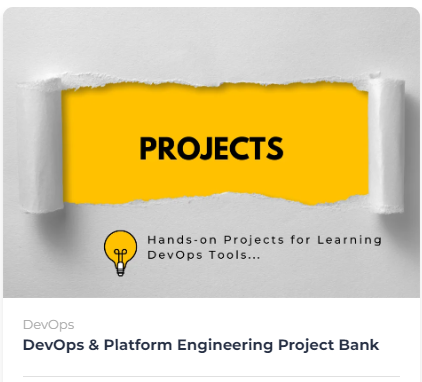IDP Tools for Platform Engineering
- February 17, 2023
- Posted by: admin
- Category: DevOps Technology
No Comments

A Review of Some Key Players in the Space
Infrastructure Development Platforms (IDPs) or Internal Developer Platforms (IDPs) are designed to help organizations efficiently build, manage, and deploy infrastructure in a scalable and automated way. Here are some IDP tools and their features:
- Ambassador (vendor: Datawire, now a part of Ambassador Labs)
- Used by companies such as Microsoft, Ticketmaster, and ClassPass
- Provides a unified control plane for managing and securing microservices-based applications
- Offers features such as traffic management, security, observability, and self-service API documentation
- Open-source, with a paid enterprise version with additional features and support
- configure8 (vendor: configure8)
- Offers a standardized way of implementing APIs and helps with API documentation, client SDKs, and related features
- Provides an API-first approach to designing and implementing APIs, which allows developers to create consistent and compliant APIs
- Offers automatic documentation generation, versioning and release management, and client SDK generation
- Both free and paid plans available with different feature sets
- Crossplane (vendor: Upbound)
- Used by companies such as Accenture, VMWare, and Samsung
- A framework for building cloud-native control planes that allows developers to manage infrastructure and services as code
- Provides a way to easily define and manage cloud resources using a declarative approach
- Open-source with free features
- Cycloid (vendor: Cycloid)
- Used by companies such as Orange, Auchan, and Veolia
- Helps developers to manage their infrastructure and applications in a standardized way
- Provides a way to easily create and manage infrastructure templates for quick deployment and management of cloud resources
- Offers role-based access control, automatic configuration drift detection, and automated compliance checks
- Open-source, with a paid enterprise edition with additional features and support
- Humanitec (vendor: Humanitec)
- Used by companies such as Trivago, Moia, and Quandoo
- A self-service platform orchestrator that provides a no-code approach to deploying and managing applications in the cloud
- Provides features such as automated testing and deployment, auto-scaling, and automatic recovery from failures
- Closed source with a free trial, followed by a paid platform with no free features
- Kratix (vendor: kratix.io)
- Offers a framework for building platforms-as-a-service that allows developers to easily deploy and manage applications in the cloud
- Provides a way to easily create and manage application templates for quick deployment and management of cloud resources
- Offers automatic scaling, monitoring, and automatic recovery from failures
- Open-source with free features
- Port (vendor: OneGraph)
- Used by companies such as 99designs, Shopify, and NASA
- Provides a simple way to manage APIs and microservices-based applications with a drag-and-drop interface
- Offers automatic documentation generation, versioning and release management, and testing and debugging tools
- Both free and paid plans available with different feature sets
- Upbound (vendor: Upbound)
- Used by companies such as Nordstrom, Red Hat, and VMWare
- Provides a unified API for managing cloud resources, which allows developers to easily automate the deployment and management of their applications
- Offers automatic scaling, automated testing and deployment, and automatic recovery from failures
- Open-source with free features, with a paid enterprise version with additional features and support
- Backstage (vendor: Spotify)
- Used by companies such as Zalando, World Bank, and Yelp
- A platform for building developer portals that provides a unified view of all the services, infrastructure, and tools used by an organization’s development teams
- Offers self-service catalogs, automated documentation generation, and integrations with other tools and services
- Open-source; offers all its features for free, although additional paid services are available through its community partners.
- Qovery (vendor: Qovery)
- Companies that have used it: Criteo, Tiller, Devoteam
- Features: Developer-first platform, no-code approach to deploying and managing applications in the cloud
- Offers a free plan with basic features, as well as paid plans with more advanced features.
- Open-source
Do you want to become a tech pro? Learn DevOps with us at BecomeATechPro.com. Interested in engaging tech talents for your projects? Click here to source tech talents.


